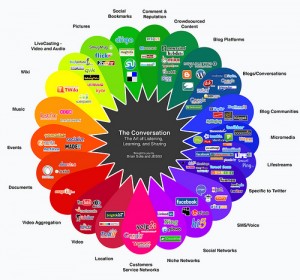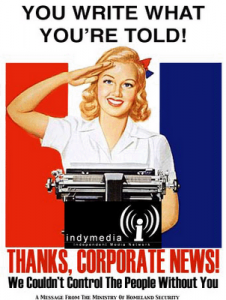Posts from — January 2012
Forget reading piles and piles of articles: Social Media as Research Platforms
There’s an app for everything nowadays. How about one to measure our Gross National Happiness Index? http://apps.facebook.com/gnh_index/ From where is my iPhone, to Brotips, What men/women really want?, Groupon. Social media really has a massive, personal and direct impact on our lives.
Status updates like “Worst morning ever. Starbucks messed up my order” or “Forgot my umbrella today”, may have more implications than you think.
A study conducted through Twitter reveals that during times like Osama bin Laden’s death, Michael Jackson’s death, H1N1 pandemics, the happiness index plummets. What constitutes the indicators of the index, are words with negative or positive connotations like “greed” or “laughter”. The accuracy of studies conducted in such an unconventional way is still being debated. However, it certainly provides a large-scale and quite personal outlook towards the nation’s well-being. It certainly has a higher turnout, either voluntarily or involuntarily, than elections!
In the article, the author writes, “As we have seen in both the work of others and ours, Twitter and similar large-scale, online social networks have thus far provided good evidence that scientifically interesting and meaningful patterns can be extracted from these massive data sources of human behavior,” Dodd and his co-authors wrote. “Finally, the era of big data social sciences has undoubtedly begun. Rather than being transformed or revolutionized we feel the correct view is that the social sciences are expanding beyond a stable core to become data-abundant fields.””
http://www.huffingtonpost.com/2011/12/21/happiness-is-down-twitter-study_n_1162644.html?1324482418&ncid=edlinkusaolp00000008
I worked as an intern at BBN3 under contract to CHEK news, during the Vancouver Olympics. My job was a researcher, to find relevant and interesting stories to report. While everyone was scrambling to search for a “hook” and catching glimpses of hockey games, I figured out that the best place to check out where everyone was congregating or meeting up, was actually Twitter. Interesting Tweets about coca cola can collections, pin-trading were prevalent in the posts. This is the power of the media. Instead of letting it control your life, why not make good use of it and apply the theories you learnt in school? The trend is to explore social trends via these platforms. Instead of reading irrelevant articles upon articles on happiness and studies, why not try it out and conduct an empirical survey on your own?
January 14, 2012 No Comments
Here’s what’s threatening democracy
With the flourishing of Twitter, Facebook, and the worldwide web in general, media now plays a big role in defining our discourse on Democracy. The question that now follows is, “Do these popular modes of communication increase an individual’s level of democracy, or does it diminish it?
Surely, it is not hard to answer that for China. Why, diminish, of course! Tian Men Square Massacres were deliberately blocked from the web, censored in schools. “China Censors: The Tiananmen Square Anniversary will not be Tweeted”. The extent of censorship reaches to magazines like The Economist, Financial Times, popular sites like Microsoft’s Hotmail, Twitter and Flixr. “BBC viewers in China also saw their screens black out when the news service broadcast stories about the anniversary, and foreign news crews have been barred from filming in the square. Readers of the Financial Times and Economist magazine found stories about Tiananmen ripped from their pages” (Wired article, please see link below). I was in Hong Kong on July 1st, 2003. I was one of the 500,000 protestors against Article 23, which would limit the rights of a citizen in the following ways:
1. Citizens will no longer be allowed to monitor and critique the government. “Article 23 Law” stipulates that what is against the “government” is against the “state” and is punishable by law
2. Article 23 gives the police total power. Police won’t need a court order or evidence to search homes or to arrest law abiding citizens.
3. Article 23 stipulates that organizations banned in Mainland China can be banned in Hong Kong at any time. Falun Gong practitioners, Catholics, Free Trade Union members and many others lives are at a huge risk!
The perils are taken from: http://dawn.thot.net/Article_23.html
Surely that won’t happen in North America, right? Think again.
http://www.wired.com/threatlevel/2009/06/china-censors-internet-before-tiananmen-square-anniversary/
Countries like India are following in the footsteps of China. A headline from today, January 14th, 2012, “Indian authorities demand censorship from Google and Facebook”. This also implies that all future content will be pre-moderated. (Please see link below). Well, North American governments are still more liberal than India. Or are we?
http://rt.com/news/india-facebook-google-censorship-801/
The United States recently introduced a bill in the House of Representatives named SOPA (Stop Online Piracy Act). While the lawmakers claim that this bill’s main objective is to ensure that no intellectual property is being stolen, speculations about the implications of this act are still ongoing. Stephen Colbert, as a content provider, in an episode urged for the rejection of this bill. The content of this bill has great implications. Not only will this give the government the right to censor foreign material that is “illegally copied”, it will allow search engines to modify search results to exclude from websites that host illegal content. This means that when you go on Youtube, and try and search for footage on the Iraq war, the government could possibly deem it to be “illegal”. Of course, you may not want to watch footages of bloody wars, but what about that clip that you want to show your class from Boston Legal for a presentation? Sorry, that’s illegal.
http://fightforthefuture.org/colbert-sopa/
The notion of democracy is founded on principles like freedom of expression. When that vanishes, the other freedoms like freedom of association, freedom of speech, freedom of religion, etc deteriorates proportionally. The ominous thought of having someone monitor your actions and even personal thoughts is surely not new. The Orwellian phenomenon, however, is ever so pervasive. “Who controls the past controls the future. Who controls the present controls the past”. This is precisely the reason why the media’s power is increasing exponentially, and why there is much government interest in interfering. From the words of V from V for Vendetta, “[a]nd where once you had the freedom to object, to think and speak as you saw fit, you now have censors and systems of surveillance coercing your conformity and soliciting your submission. How did this happen? Who’s to blame? Well certainly there are those more responsible than others, and they will be held accountable, but again truth be told, if you’re looking for the guilty, you need only look into a mirror”. Ultimately the only way to alter the course of falling into the trap of un-democracy, is the reflection of every citizen on their rights, and to safeguard them against the governmental powers as much as possible.
January 14, 2012 No Comments

